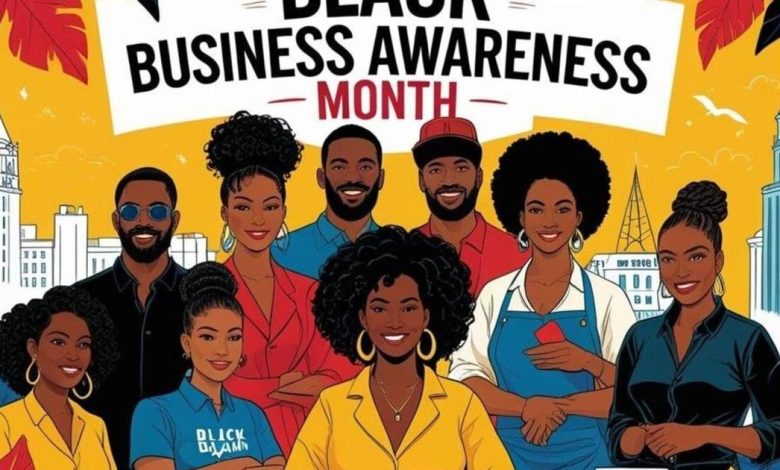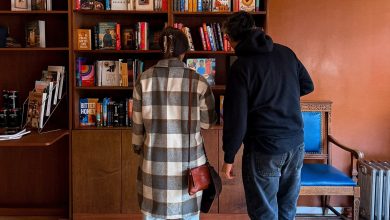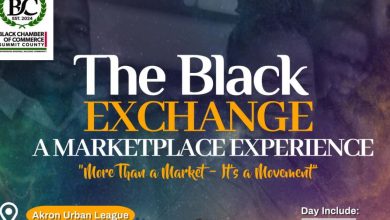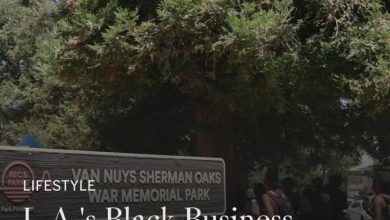Bridging the Gap Between Visibility and Support

flag wire: true
flag sponsored: false
article_type:
pubinfo.section:
cms.site.custom.site_domain : thespec.com
sWebsitePrimaryPublication : publications/hamilton_spectator
bHasMigratedAvatar : false
firstAuthor.avatar :
By
Sydney Alexandra, Local Journalism Initiative Reporter Burlington Local-News.ca
“We’re still about 20 years behind where we should be when it comes to supporting Black-owned businesses,” says Kezia Royer-Burkett.
That’s the reality driving this year’s Black Business Awareness Month initiative in Halton. While the United States has officially recognized Black Business Month since 2004, many municipalities in Ontario are only now beginning to follow suit. This year’s proclamation in Burlington isn’t just symbolic, it’s a call to action, unity, and visibility. It’s about breaking down systemic barriers that have long hindered Black entrepreneurs.
For community advocate and Burlington Local-News journalist Royer-Burkett, the need for representation and cultural awareness in Burlington became especially clear when she moved to the city with her family.
“When I moved to Burlington, I felt like I’d stepped back in time. I went from living in 2013 to 1960. It was like going back to the Civil Rights Movement,” said Royer-Burkett.
Her advocacy journey began at her son’s school, where she worked to improve how Black History Month was celebrated.
“I started by helping Florence Meares Public School rethink how they approach Black History Month. As a Black person, I felt like the best way to celebrate was through economic empowerment by putting money into Black people’s pockets.”
That experience led her to organize the first Afro-Caribbean Market, which was later picked up by Halton Black Voices (HBV). Royer-Burkett began researching Black-owned businesses in the region and invited them to participate without charging vendor fees.
“That was a huge deal. Many vendors had never had an opportunity like that. Some of them even went on to land catering contracts with local school boards. That kind of exposure and support is what real celebration looks like.”
The Afro-Caribbean Market has since grown into an annual event hosted in partnership with the Halton Catholic District School Board, helping to give Black vendors recurring, meaningful exposure. Royer-Burkett’s work with Halton Black Voices also laid the groundwork for pushing the city to recognize Black Business Awareness Month.
Despite that progress, she remains critical of the city’s approach to equity. Royer-Burkett was hoping to engage the mayor and her office on a collaborative plan to promote Black-owned businesses on city social media channels, but was referred to the city’s communications team and other organizations instead.
The communications team responded with the city’s usual protocol for proclamations: ”To help ensure we can accommodate the many important requests we receive from across our community, the City uses proclamations and flag raisings as the primary way to recognize these initiatives year-round. In keeping with this approach, we do not share additional content related to external initiatives on our corporate social media channels, but we encourage residents and organizations to take advantage of the City’s online Events Calendar to help promote their activities more broadly.”
“The city treated the proclamation like a checkbox. There was resistance just to have a public reading of it. But we need more than paperwork. We need action. Actions that match the words. Proclamations don’t keep the lights on for small businesses.”
She added that many Black entrepreneurs in Halton are still operating in survival mode.
“We need to help lift businesses out of survival mode and into the spotlight. When people are just trying to survive, there’s no space for growth.”
Royer-Burkett has also challenged local institutions on their accessibility and intent.
“Vendor fees at the Sound of Music Festival were over $1,000. That’s not accessible for a small business making maybe $100 a week. We talk about economic inclusion, but who are we really including?”
She believes the standard for inclusion needs to be taken seriously with more genuineness and honesty.
“If you have 80 vendors and only one of them is Black-owned, that’s 0.8%. That’s not diversity, that’s tokenism. Organizations should aim for at least 30% of vendors to be Black or POC-owned. And if they’re not there yet, they should be actively building those relationships.”
Royer-Burkett hopes that this proclamation also encourages Halton residents and everyday allies to take small but powerful steps in promoting Black-owned businesses in any way possible.
“If you have a good experience with a Black-owned business, share it. Use your platform. Share it on social media. That kind of word-of-mouth support makes a difference. Ask yourself, ‘How many of my dollars go to Black-owned businesses?’ That’s where inclusion starts.”
But one of her deepest frustrations is with Burlington’s lack of current Black representation, especially in politics.
“I was born in Canada. I went through the Canadian educational system. I learned you can be whatever you want when you grow up — and I’m grown up, and I still want to be whatever I want. Just being able to empower and encourage people to do what they feel is their purpose, how they want to serve the community, or share their talents with the world, I’m all for that. I try to support them and highlight them in every way I can.”
She continued: “Being a freelance journalist, I don’t want to just keep telling the same people’s stories over and over when there are others out there making a real impact. In the Burlington community, those stories made an impact on me, but they weren’t being told.”
When she worked on a Burlington Local-News article for Black History Month, she tried to spotlight those untold narratives. “I wanted to show we have more diverse stories. But I hit a wall. I was trying to tell the story of: ‘This is our history, we always talk about the Underground Railroad and all these firsts, but what about now?’ I couldn’t find anything.”
She began looking into first responders, as Henry Thomas Shepherd was recognized as the first Black fire chief in Georgetown, Halton Hills: “I asked, ‘Do we have any Black firefighters?’ The answer was no. ‘Have we ever had any since?’ Again, no. I was like, ‘So we have all this history, but what have we done since?’”
She widened her search to local politics: “There are no Black people in elected office across Halton. Not one. The only person anyone could find was a Black city councillor from Milton, and he was removed from office after being publicly arrested in front of council. That was it.”
The silence was deafening.
“It was like, is this all we have? No current stories of Black history in Halton? That was incredibly frustrating for me. And that’s why I’ve pushed so hard to change the narrative. Because if we don’t, we’ll be stuck forever telling stories that end in 1865. Harriet Tubman. The Underground Railroad. But where is the current Black experience in Halton?”
She emphasized the importance of seeing living, thriving examples of Black excellence in the present — not just in history books.
“Our kids need to see progression. They need to know Black people aren’t just frozen in time, celebrating things that happened 100 to 200 years ago. That there are businesses opening right now. People making a difference right now.”
She recounted a personal moment that highlighted how deeply embedded stereotypes still are.
“In my second year here, the school brought in a guest speaker to teach the students about Africa. The speaker was a white man who had visited the continent once. He came in mimicking drumming and dancing, saying, ‘This is how they greet you.’ I asked him what country he visited, and he wouldn’t say, just ‘Africa.’ I was floored.”
She added, “Imagine if Black people came to Europe and gave school assemblies on colonization, it would never happen. That kind of behaviour comes from a colonial mindset, and we have to be willing to challenge it.”
Still, she acknowledges some recent progress, particularly in education. She praised the Halton District School Board’s “Exploring Us 2025” program: a free summer camp for students in grades 6 to 8 led by Graduation Coaches.
“My son absolutely loved it. He wants to go back next year. I feel more at peace now with the experiences he’s having as a Black student. We’ve made strides, but we’re still playing catch-up.”
Royer-Burkett attributes her perseverance to the strength of her community, especially Halton Black Voices.
“With HBV, I feel grounded. The events they host, like the Black Joy Gala or community barbecues. They remind me of the cultural community connection and joy I had growing up. Now my son gets to have that, too.”
She expressed deep gratitude to mentors and collaborators like Shelita Walker, system principal of human rights, equity, and inclusive education at Halton District School Board, and Gennile Thomas-Smith, founder of Halton Black Voices.
“Gennile trusted me. I asked if I could pursue this proclamation with HBV, and she said, ‘Absolutely, do your thing.’ That kind of support kept me going. Without this community, I don’t think I could have done any of it.”
But she knows there’s still a long road ahead.
A public proclamation ceremony for Black Business Awareness Month will be held at Burlington City Hall (426 Brant St.) on Thursday, Aug. 14, from 9 a.m. to 9:30 a.m.
As Royer-Burkett and others continue to push for meaningful change, one message remains clear: acknowledgment is just the beginning. Change and equity demand action.
For more information on ways you can support Black-owned businesses, visit: afrobiz.ca.
[Editor’s Note: Kezia Royer-Burkett is a freelance journalist with Burlington Local-News.ca. This article highlights her advocacy work in the community as a separate initiative from her reporting.]




